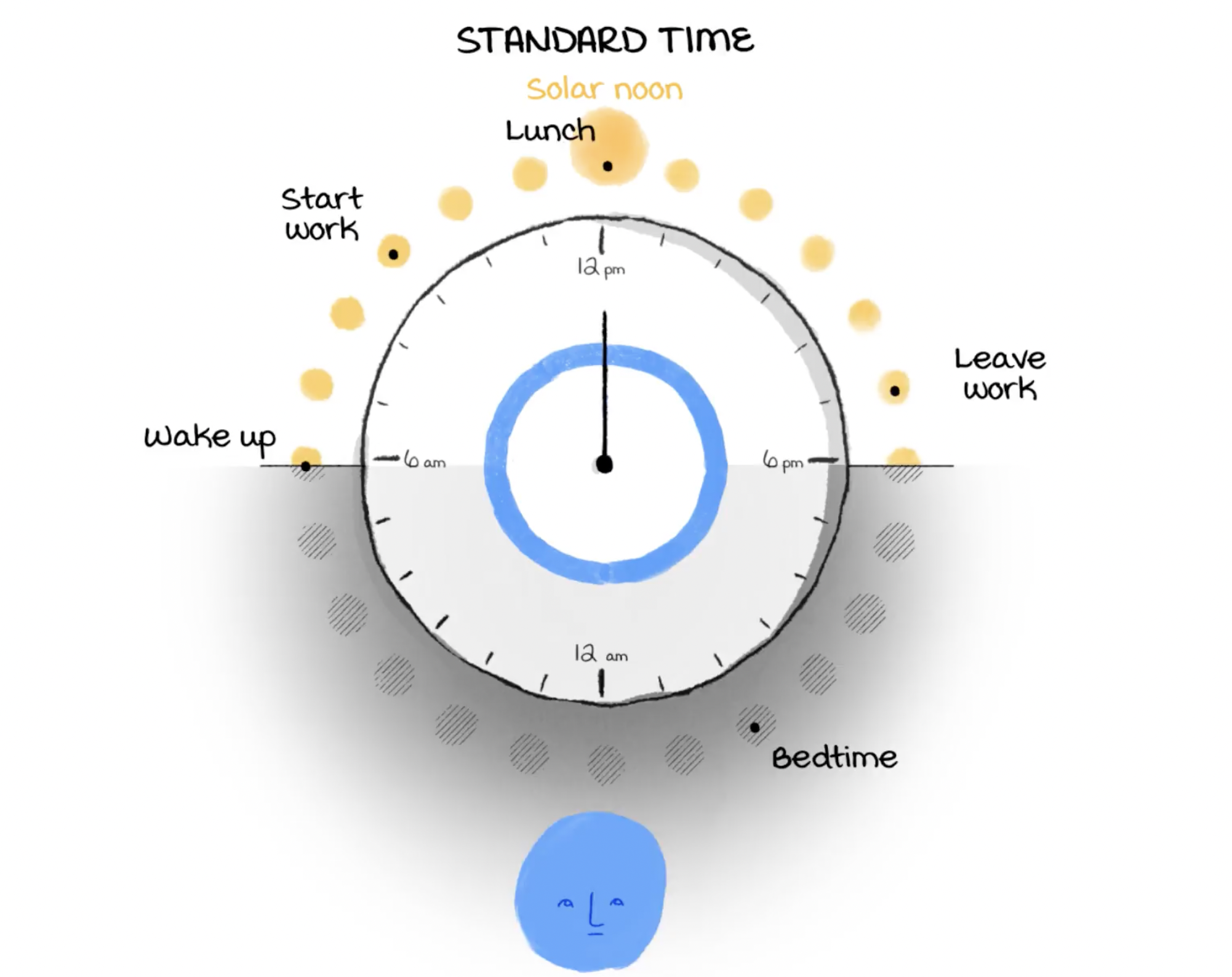Adverse experiences can change future generations through epigenetic pathways
Read moreDaylight-savings time and mental health
Daylight-savings time and mental health, strategies for seasonal affective disorder and an animation to understand our bodies in relation to daylight-savings time.
Read moreWhy Adults Still Dream About School
Getty; The Atlantic
Long after graduation, anxiety in waking life often drags dreamers back into the classroom.
Read moreHow men can save relationships by learning to be vulnerable
(Isabel Espanol/Illustration for The Washington Post)
Therapists know that opening up to partners and spouses, and to potential rejection, builds and deepens trust, empathy and intimacy.
Read moreWhat I needed was a rest break on the Island of Grieving and Useless Folks
(Celia Jacobs / For The Times)
In January, my husband blindsided me with divorce. Not for a moment during the prior 36 years did I doubt that we would spend the rest of our lives together.
Read moreWhy you should stop complimenting people for being 'resilient'
illustrated by Connie Hanzhang Jin
Why you should stop complimenting people for being 'resilient'
From NPR’s Podcast Life Kit
This episode of Life Kit dives into how you can reframe your relationship with resilience.
Lourdes Dolores Follins, psychotherapist and licensed clinical social worker, explains why it's OK to let yourself feel angry or frustrated sometimes — and how unexamined resilience can mask structural forces that make your life harder.
Listen to the full episode below or here.
Can’t seem to meditate? 7 joyful activities for you to try instead
Allie Sullberg
The moral of this story isn’t “don’t meditate” but rather, that meditation is like many things — great for some people, but not necessarily for everyone.
Read moreWhat does it mean to be mentally 'well'?
Jim Cooke / Los Angeles Times
Ups and downs are normal. The fact that you experience difficult emotions sometimes is a good thing. It means you’re alive.
Read moreEvery Moment Can't Be a 10 Out of 10
Sometimes you have to celebrate the fours, fives and sixes.
Read moreSetting good boundaries makes you a better friend.
As daunting as it can seem, learning how to successfully set clear boundaries with your friends is important for two big reasons. First — and this may seem counterintuitive — it makes you a better friend.
Read moreEver say “I’ll be happy when …?” Here’s why you need to stop doing that — now
Bug Robbins
The habit of saying “I’ll be happy when …” keeps us wishing and searching instead of enjoying and living.
Read moreHow Heat Waves Take a Toll on Mental Health
María Medem
The discomfort of heat, and the energy it takes for the body to cool down, can lower overall resilience. So agitation, irritation and pain become less bearable, he said.
Read moreThe Age of Distracti-pression
Karan Singh
If you’re wondering which pills and how many of them Americans have relied upon to make ourselves feel better since Covid-19 arrived, the answer, in short, is yes.
Read moreHow Our Brain Preserves Our Sense of Self
Credit: Zoe Liu
Psychologists have long noticed that a person's mind handles information about oneself differently from other details. Memories that reference the self are easier to recall than other forms of memory.
Read moreHow Universal Are Our Emotions?
Emotions can be thought of as “relational acts between people,” Batja Mesquita writes, rather than as mental states inside us.Illustration by María Medem
Emotions aren’t simply natural upwellings from our psyche—they’re constructions we inherit from our communities.
Read moreIt's Time to Stop Living the American Scam
Sebastian Koenig
“no one’s calling it anything other than what it is anymore: an endless, frantic hamster wheel for survival.”
Read moreThree Tips for Helping Kids Calm Down
Here are three things you can do to help a child regulate their body when they are upset and can't think.
Read moreWhat the Pandemic Can Teach us About Endings
Are we asking the right question?
Read moreWhy You Will Marry the Wrong Person
But though we believe ourselves to be seeking happiness in marriage, it isn’t that simple. What we really seek is familiarity —
Read more



















